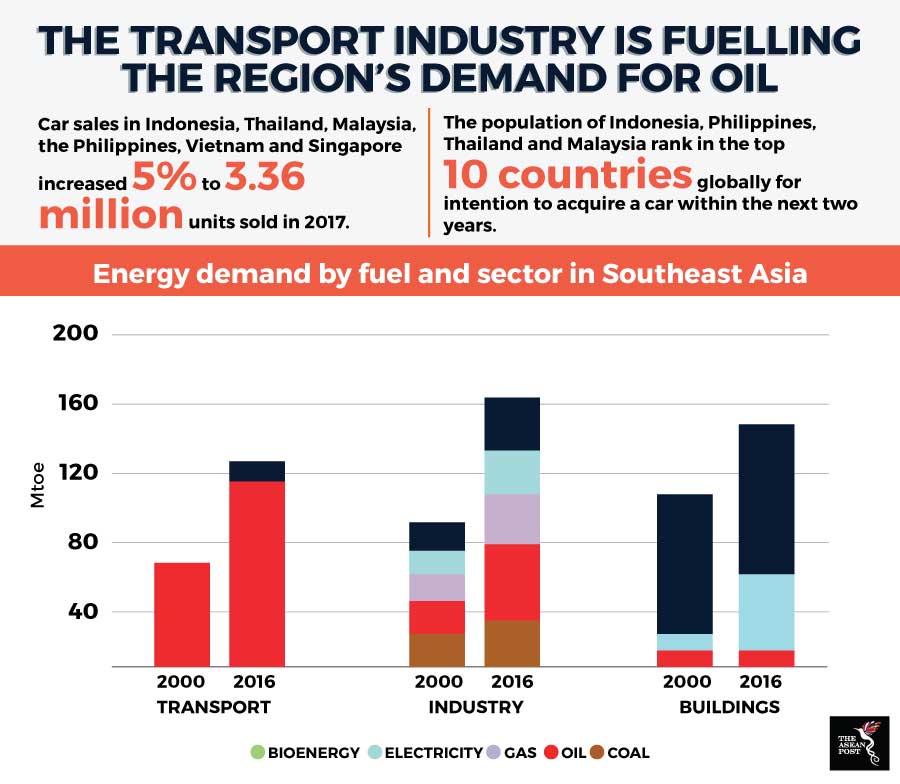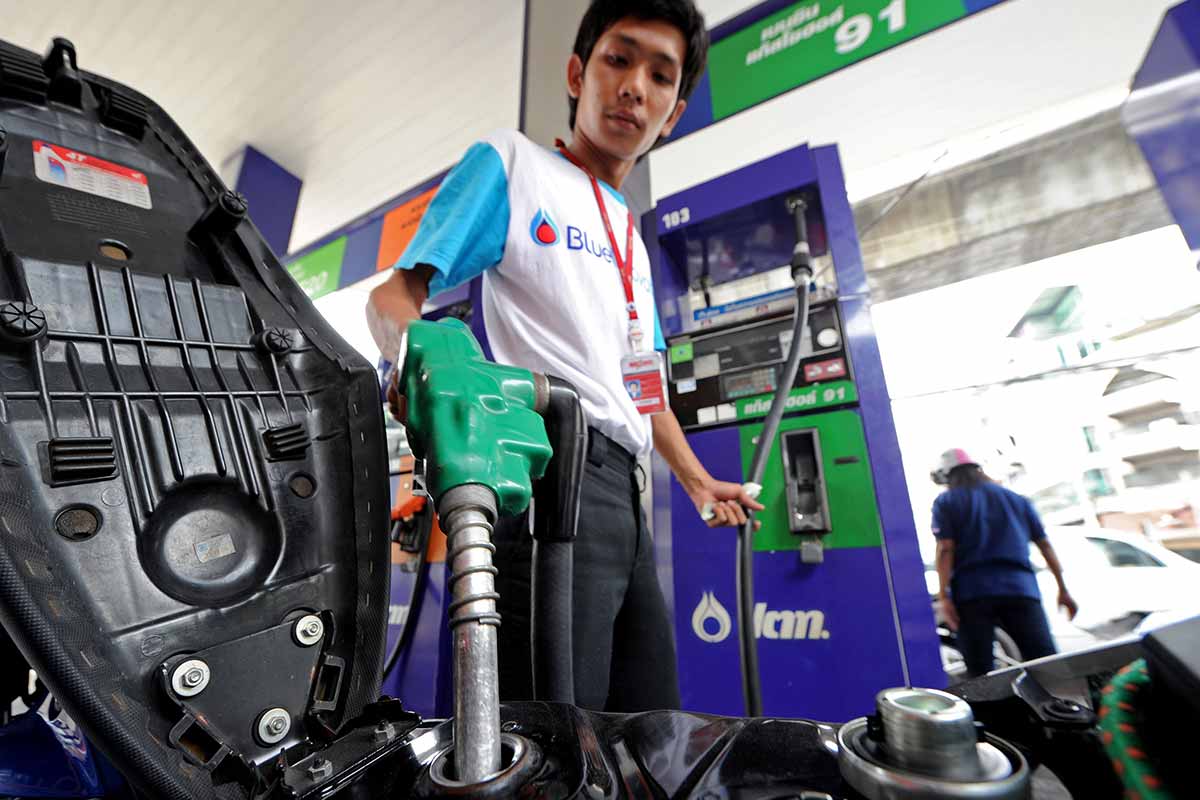Fuel subsidies have always played a significant role in Southeast Asia – most notably in oil producing states such as Brunei, Indonesia, Malaysia, Myanmar, Thailand and Vietnam. While Southeast Asia’s economy may be expanding rapidly, most of the countries there have yet to reach the level of a high-income nation. With oil prices constantly fluctuating, fuel subsidies are often seen as a vital policy to help citizens cope with the cost of living.
Oil demand in Southeast Asia
While Southeast Asia used to be a hub for oil exports, most oil producing countries in the region are transitioning to becoming oil importers as opposed to exporters. It is forecasted that oil production in the region will drop by 30 percent by 2040. This is brought about by a number of reasons including dwindling reserves and the lack of new oil fields being discovered.
Despite the drop-in oil production, demand for oil in the region is expected to grow. According to the International Energy Agency (IEA) Southeast Asia Energy Outlook 2017, oil demand in the region is expected to increase from 4.7 million barrels per day to around 6.6 million barrels per day in 2040. As energy demand is expected to increase and oil production in the region to drop, oil imports in Southeast Asia is expected to soar two-fold.
The reason behind the increase in oil demand is largely due to the region’s booming transportation sector- particularly its automotive industry. With the region growing in terms of wealth, car ownership rates are expected to see a spike in coming years. Last year, aggregate new car sales in Singapore, Indonesia, Malaysia, Thailand, Vietnam and the Philippines rose five percent to nearly 3.4 million units sold. Aside from that, it is estimated that vehicle ownership across the region is expected to grow by more than 40 percent by 2040. Meanwhile, motorcycles will remain a popular mode of transportation for Southeast Asians, as the region has become synonymous with images of traffic dominated by the ubiquitous two-wheeler.

Source: International Energy Agency Southeast Asia Energy Outlook 2017
The importance of fuel subsidies
As the region still lags behind other developed countries in terms of public transportation, having a personal automobile is a necessity for most citizens here. Mobility is important as it ensures that people have means to get to work, transport family members, run errands and more.
As such, fuel subsidies play a vital role in the daily lives of citizens that live in countries with fuel subsidies. Without fuel subsidies, the prices of fuel in countries like Malaysia, Indonesia, Thailand and Vietnam would be set by market forces, making it vulnerable to sudden price fluctuations which could have an effect on the lives of its citizens.
With the recent rise in global oil prices, Thailand announced in May that it will use its state oil fund to help consumers cope with higher fuel prices. According to the energy minister, the country will use money from the fund to absorb 50 percent of any increase in retail prices.
In Vietnam, the Petroleum Stabilisation Fund is used to reduce the price fluctuation stemming from changes in international oil prices.
Fuel subsidies have become important in these countries. So much so that it becomes an issue that politicians exploit for political mileage. For example, in Malaysia, one of the major reasons why the Alliance of Hope (Pakatan Harapan) was elected into power was its promise of reintroducing fuel subsidies that former Prime Minister Najib Razak rolled back on. Ever since coming into power, the newly elected government there has implemented a ceiling price for RON 95 fuel and subsidises the difference should the market price rise above the ceiling price.
Problems with subsidies
Analysts often criticise fuel subsidies as incentives for citizens to buy cars or consume fuel unnecessarily. Furthermore, the money spent on subsidising fuel could be used to fund other infrastructure. Also, fuel subsidies have been shown to be a burden on the country’s finances.
As of late, governments are beginning to realise that providing fuel subsidies could place strain on them financially. According to the IEA, the latest data shows that fossil fuel subsidies in Southeast Asia has cost the region US$17 billion. Because of such large expenditure on subsidies, countries such as Malaysia, Thailand and Indonesia have started reforming their subsidy policies.
The Indonesian government abolished subsidies for gasoline in 2015 and fixed subsidies in 2016. The reforms saved the government around US$8 billion which has been redirected to infrastructure development and social programmes. However, with oil prices going up again, the government has decided to reintroduce fuel subsidies.
Subsidies may keep citizens happy, but it does no good for the environment. Nor do we want a citizenry that is dependent on subsidies. Governments in the region need to rethink the role of oil subsidies and focus their spending on programmes or infrastructure that could further benefit their people.
Related articles:
